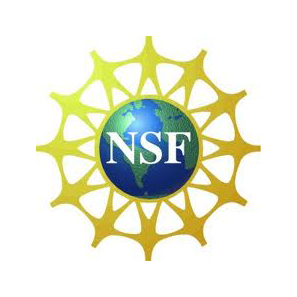
Ashok Samal and LeenKiat Soh are part of a team of UNL researchers that received a $490,758 NSF award for their project "Investigating the role of Distrust in Unauthorized Online Activities Using an Integrated Sociotechnical Approach". The award will run from August 2012 - August 2014.
Abstract
Unauthorized online behavior motivated by social, political, economic and cultural (SPEC) conflicts is increasing. However, research dealing with cyber-attacks has tended to be reactive and to focus on defense, instead of proactive and focused on the root psychological and social causes of such attacks. Despite considerable evidence that trust and distrust impact rule-following behaviors and obedience to the law, little research investigates the role of distrust in promoting unauthorized online behaviors. Critically, trust/distrust research in other areas suggests the cyber-attacks might be reduced through interventions aimed at forms of distrust. Thus, advancing knowledge about distrust in general and in this specific domain is important both for social science and cybersecurity.
The present project will answer questions about whether different types of distrust have different effects on willingness to engage in or provide support for cyber-attacks, and will investigate the effectiveness of sociotechnical interventions designed to reduce unauthorized online behaviors. The central hypothesis is that relationships between distrust and unauthorized online behaviors (or support of such behaviors) depend on the specific bases of distrust, and require different remedies. The project will achieve its aims by the development of vignettes that systematically vary conditions likely to foster trust or distrust and motivation for unauthorized online behaviors. The effects of the variables manipulated in the vignettes will be tested in other groups of students using online experiments and simulation (role-playing) activities. The project will also develop and test an online deliberative space that can both take advantage of the research findings and provide an environment for theory-testing. Specifically, the online prototype will be able to manipulate key trust/distrust-relevant features of the deliberative space while measuring and tracking participant online behaviors, providing data that can then be subject to data mining procedures in order to find important patterns of behavior related to trust and distrust.
The intellectual merit of the current research is that it uses distrust as an organizing construct to understand individual behaviors and attitudes toward security in cyberspace and innovatively uses science communication as the specific application domain to investigate cybersecurity. By examining the antecedents and consequences of distrust, and by integrating a variety of research approaches, this research will both (a) advance theoretical models of trust and distrust generally, and (b) enhance the prevention of cyber-attacks specifically by providing insights that contribute to the design of institutions and interventions perceived as legitimate and obedience-worthy even in the context of culturally divisive issues.
The broader impacts of the proposed activities are that the research findings will contribute to the creation of online spaces for public engagement that encourage optimal behavior and reduce destructive and ethically questionable behaviors (e.g., cyber-attacks, hacktivism). The platform developed for our research will be widely applicable to studying problems in other domains, and can be used to further research, as well as in applied educational and policy contexts. Through this project, hundreds of undergraduate and graduate students will be exposed to topics beyond their discipline including cybersecurity, climate change and public deliberative engagement. Finally, by educating students about online deliberation, pros and cons of argumentative discourse, public engagement and policy making, we are training future scientists to be leaders and world citizens.
-----------------------------------------------
UNL Graduate Student Brian Bockelman recently received a NSF award in the amount of $573,344 for his project "Bringing Distributed high Throughput Computing to the Network with Lark". The award will run from October 2012 - September 2014.
Abstract
The Lark project provides network-aware scheduling for distributed computing resources, allowing workload management schedulers to make network-aware provisioning decisions and providing mechanisms for individual batch jobs to describe and request the networking topology required. Specifically, Lark will integrate the capabilities of the perfSONAR, a network performance monitoring tool, and DYNES, a cyber-instrument for allocation of bandwidth guarantees, into distributed computing grid middleware such as Condor and glideinWMS. By using a multi-site IPv6 test-bed and collaborating with a Nebraska project to provide small starter clusters to local colleges, the project aims to produce production-quality technology that could be deployed into the Open Science Grid (OSG).
This work will enable better trade-offs between selection of a site to execute jobs, data location decisions, performance, and security in large distributed computing environments, hence providing more effective use of limited resources. This project addresses a clear and immediate need in the Large Hadron Collider (LHC) computing environment, as network-aware scheduling will increase the amount of analysis the LHC experiment collaborations can perform. By integrating this work into the widely-used Condor high throughput computing software and into the OSG stack, the benefits will become available not only to LHC researchers, but to a number of science and industry projects that rely upon distributed high throughput computing.